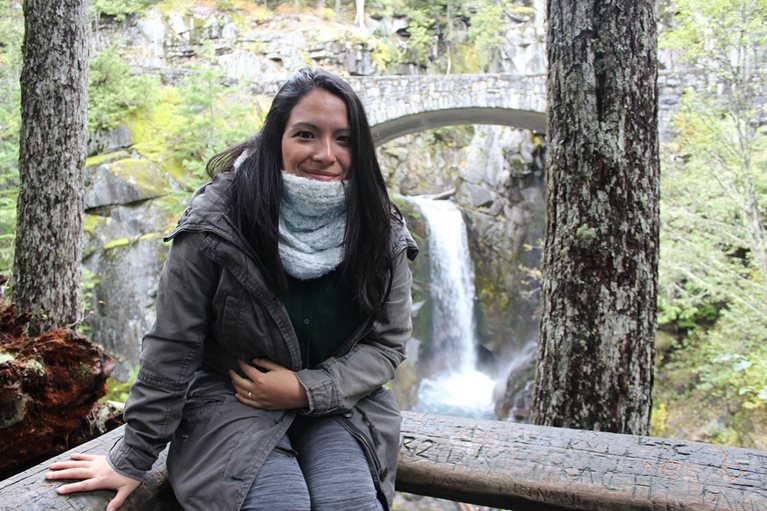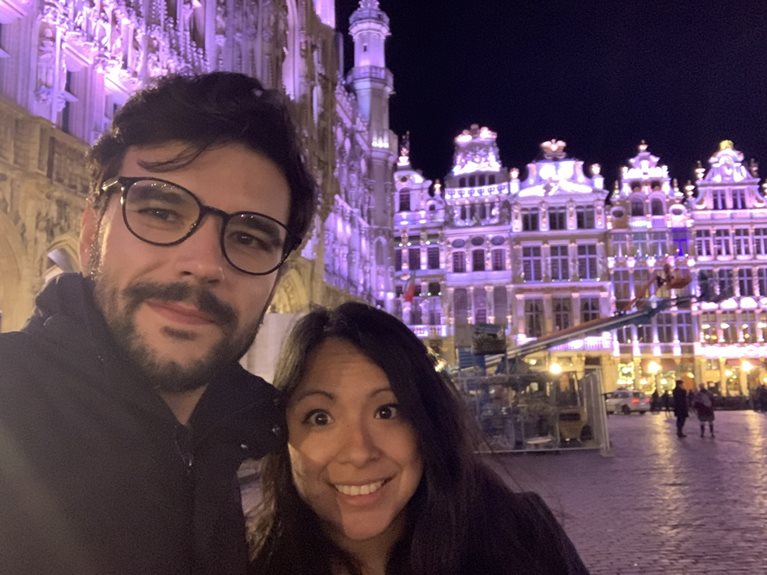Sofia is an engagement manager based in Philadelphia. She primarily serves pharmaceutical and medical device companies in Europe, Africa, and North America. She is Peruvian and moved to the US to pursue a PhD in biochemistry and biophysics. In this article, she shares the questions candidates ask her most frequently, her experience as a Latin woman at the firm, and her approach to staying connected with science.

About me
I was born and raised in Lima, Peru. After finishing undergrad there, I moved to the US to pursue a PhD in the molecular biophysics and biochemistry at Yale. During my PhD, I used multidisciplinary approaches to elucidate key parts of the biochemical pathways that allow cellular motility. As I neared graduation, I had to think about what I wanted to do after my post-graduate studies. Once I started exploring potential career paths, I was immediately intrigued by consulting. I discovered through interviewing that I really enjoyed the intellectual challenge of solving cases. My interest in McKinsey grew the more I talked with consultants about the work they did and heard how enthusiastic they were about their experience at McKinsey.
During my 3 years at the firm, I’ve had the opportunity to participate in multiple recruiting efforts (e.g., Diversity Connect faculty member, was the Mid-Atlantic Women’s recruiting lead for advanced degree professionals to name a few). I wanted to address some common questions I receive from candidates.

1. Why McKinsey?
My response has shifted over the years from why I decided to join to what keeps me here. There are multiple dimensions and here are two main reasons. First, is the ability to make change happen through my work. I've supported multinational companies through procurement transformations, helped global companies through integrations, and supported a US state on its COVID-19 response – increasing PPE and ventilator capacities. Many of these projects have been once-in-a-lifetime opportunities.
Second, are the people and culture. I’ve met impressive and hardworking individuals. I've learned what genuine, caring mentorship means. I've met inspiring leaders I look up to including women with whom I've created connections like I've never really had anywhere else. I've learned to appreciate feedback and embedded it in my way of working.
Ultimately, being able to work with people I admire on content I find interesting keeps me energized and motivated to bring my best self to work.
2) How much flexibility do you have to explore different type of projects?
When joining the firm, I made a conscious decision to explore as much possible. I wanted to try different industries, functions, and geographies. My first year at McKinsey felt like a post-graduate’s first year of rotations. Through that process, I found my interests, strengths, and working style converged in the Pharmaceutical and Medical Products (PMP) practice. I enjoy the types of problems we are trying to solve. I get to leverage my background, and I enjoy working with the people. Exploring hasn’t really ended for me, though, as I am still doing that within PMP. In fact, there is no shortage of diversity in the type of projects we get to support.
Working in a global firm also gave me the flexibility to work in other countries. Throughout my time at McKinsey, I've lived in three different continents. I’ve worked on engagements with a similar focus in four different countries, which showed me how similar companies operated differently across the world. Leveraging this knowledge made me a better client counselor.
My journey at McKinsey has purposely involved a lot of travel. That was one of the reasons I joined. I am grateful my husband is supportive of this, and I am fortunate his commitments give him the flexibility to spend time with me while I’m abroad. Each McKinsey colleague has a different journey and, even for me, this can change based on new priorities as they develop in my life. For example, if I decide to become a parent or to focus on local client projects, I can work with our professional development team and PMP practice leadership to find more local engagements.
3. Do you feel supported as a Latina at McKinsey?
Fostering diversity and inclusion are priorities for us. We strongly believe diverse teams enable us to develop stronger solutions with our clients. As a consultant, I see this manifest in different ways, perhaps most tangibly through our affinity networks. One of these is the Hispanic and Latino Network, a vibrant community of colleagues who identify as Latino and Hispanic. Thanks to this network, I've found amazing role models to whom I could immediately relate and colleagues who helped me get a sense of belonging early in my McKinsey career. The connection I have with the Hispanic and Latino community inspires me to be actively involved in diversity recruiting efforts. For instance, I was recently a faculty for Diversity Connect, an program that supports talented Black, Hispanic/Latino, and Native American candidates working toward an advanced degree. I was particularly energized by the level of engagement and curiosity the participants brought with them. I appreciated the opportunity to give back; not long ago, I was the candidate reaching out to consultants and navigating the application process.
Actually, if I think about every dimension in which I need support, there is a resource or group that exists to help. As an immigrant, I deal with particular challenges, and there is a legal team ready to answer my questions. As a consultant joining without a business background, I was offered specific trainings that helped smooth the transition from academia to consulting. I have access to Women at McKinsey our global, firm-wide network that provides mentoring and women-focused training programs. This list goes on and on.
4. Were you afraid of leaving science?
Science took me to wonderful and unexpected places. Even though I was sure I wanted to pursue a career as a consultant, a part of me was a bit scared to leave science completely.
While at McKinsey, I realized my involvement in science didn't have to go away. On the weekends, and in between client projects, I support two science outreach programs that aim to increase accessibility to the field to minorities: the Research Experience for Peruvian Undergraduate program and the Science Club International.
Mine is not an isolated case. Whether science, volunteering, or learning new skills are your passion, you’ll be encouraged to set time aside for yourself during client engagements and given access to firm-wide programs that help you find a work-life balance that works for you. One of the most popular is Take Time, a program that allows up to 10 weeks of additional unpaid leave during the year. I know colleagues who took a couple of months to travel around the world, spend more time with their families, and even climb Mt. Everest.
Thinking back and reflecting on my journey, I was extremely fortunate as my scientific training gave me tools that make me a better consultant, such as being hypothesis-driven, detail-oriented, and having the ability to communicate complex concepts in simple terms. My time in McKinsey has given me many invaluable skills that are useful inside and outside the firm. For instance, I’ve become a more structured problem solver, a better mentor, and a better listener.
If you are pursuing a PhD, JD, or MD, please apply by July 12